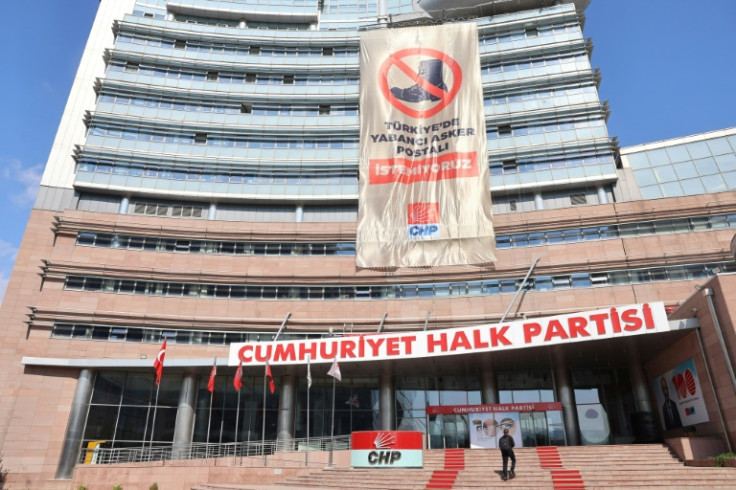
Turkey's parliament on Tuesday extended the military's authorisation to launch cross-border operations in neighbouring Syria and Iraq by two more years.
They were first approved in 2013 to support the international campaign against the Islamic State (IS) group, and has since been renewed annually.
In 2021, it was renewed for the first time for two years, giving President Recep Tayyip Erdogan a longer window in which to pursue campaigns against Kurdish militias in the restive region.
"It's essential to Turkey's national security to take necessary measures in line with the rights arising from international law against all kinds of risks, threats and actions that may pose a danger to Turkey's national security," the motion signed by Erdogan says.
It also says Turkey would welcome the deployment of foreign troops on its soil with the ultimate goal of fighting terror groups as per circumstances set by the president.
That clause drew strong criticism from the main opposition CHP party which has campaigned for "no foreign boots" on Turkish soil.
"As a nationalist, I don't want any foreign troops to set foot on Turkish soil," the party's leader Kemal Kilicdaroglu said last week.
CHP lawmakers voted against the motion on Tuesday.
Turkey has intensified its cross-border air raids against Kurdish targets in northeastern Syria and northern Iraq in retaliation for the October 1 bombing in Ankara. That injured two policemen and was claimed by a branch of the outlawed Kurdistan Workers' Party (PKK).
The PKK, which has waged a decades-long insurgency against Turkey, is considered a terrorist group by Ankara and its Western allies.
Turkish officials said the two assailants who died in the Ankara attack came from Syria.
Turkey's operation in Syria primarily targeted oil and other energy facilities controlled by the Kurdish People's Protection Units (YPG).
The group comprises an integral part of the US-backed Syrian Democratic Forces (SDF) -- the Kurds' de facto army in the area -- that spearheaded the battle to dislodge Islamic State group jihadists from the region in 2019.
Ankara considers the YPG a terror group with links to the PKK.




